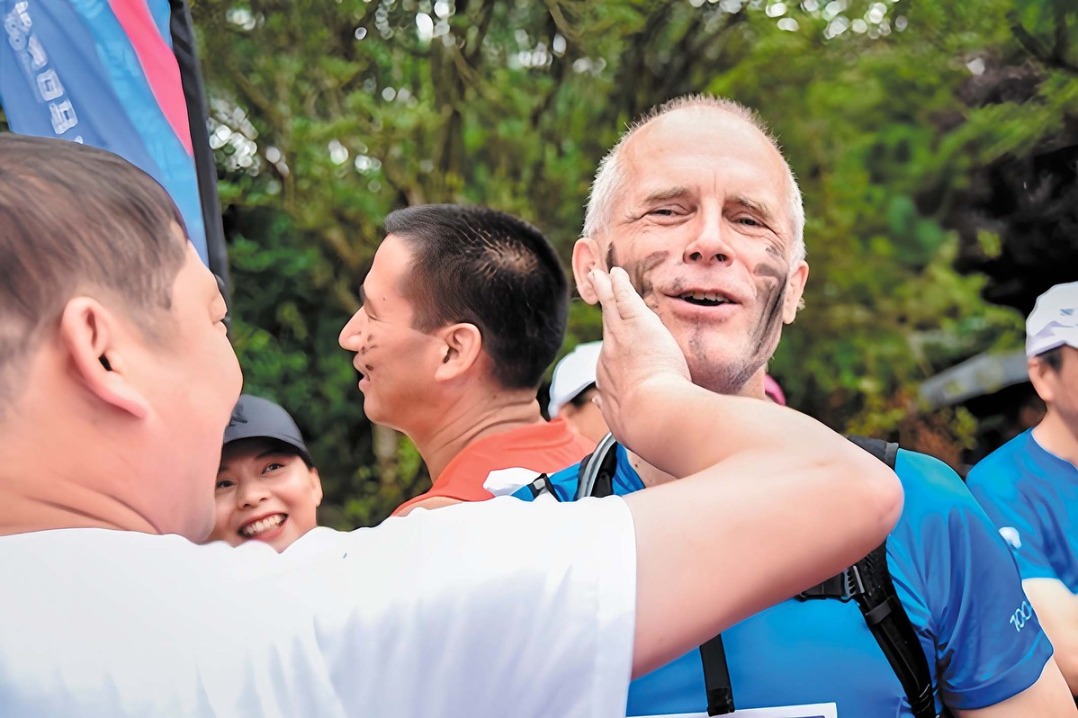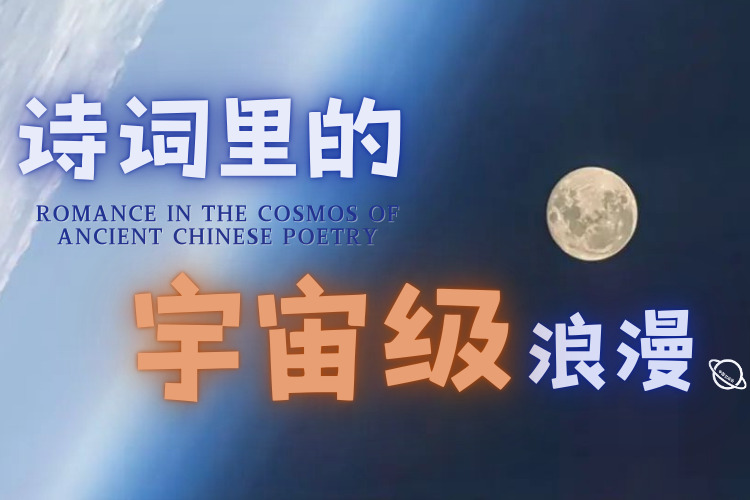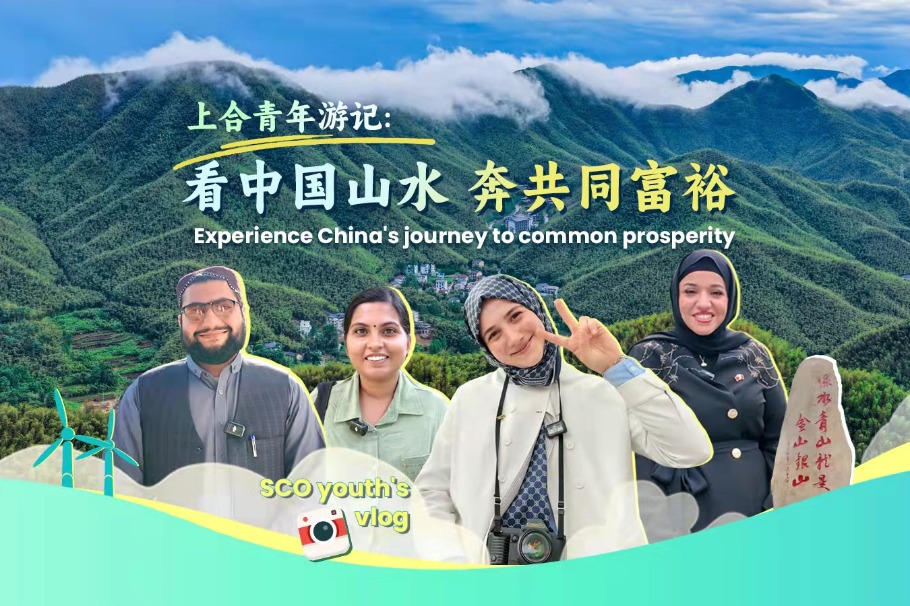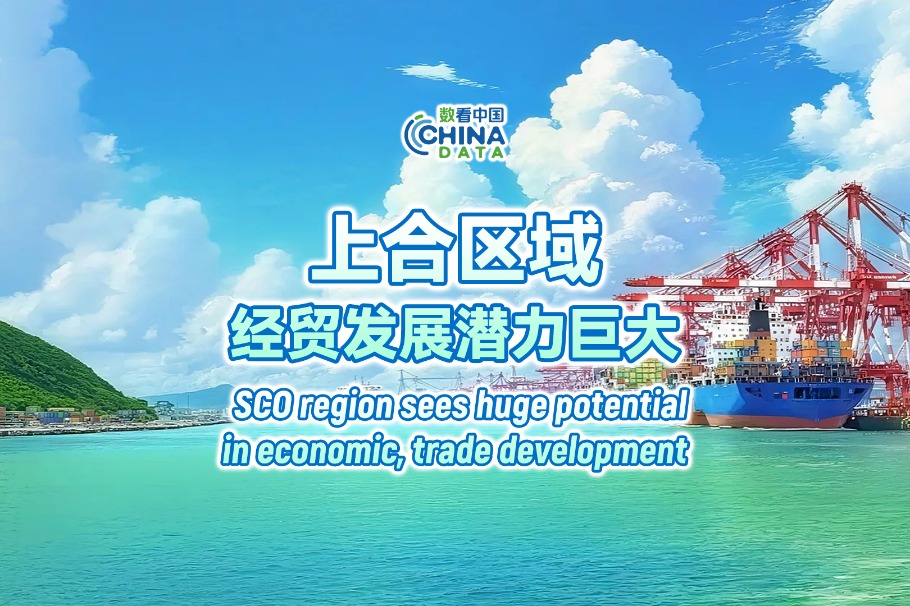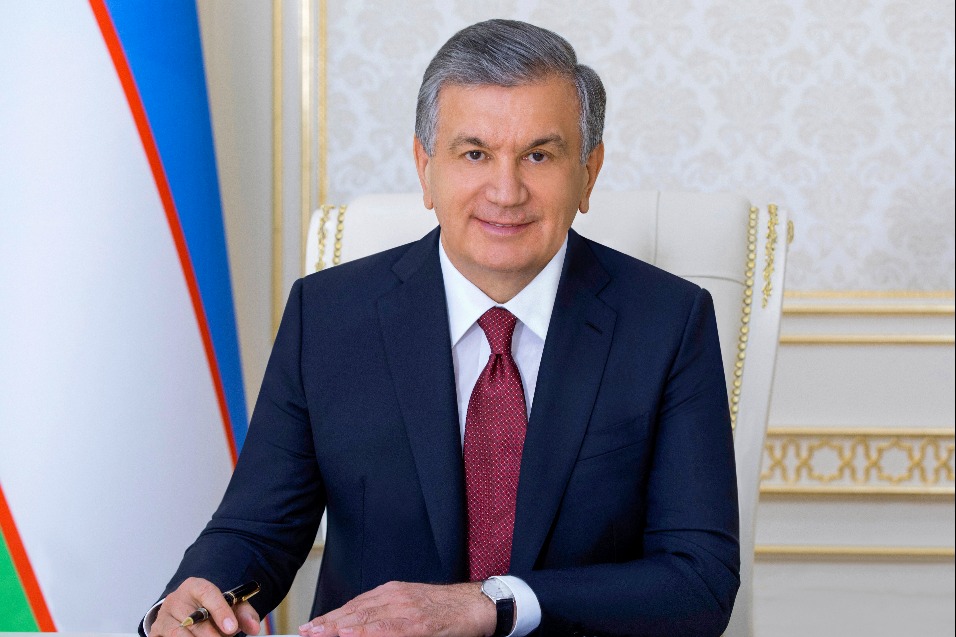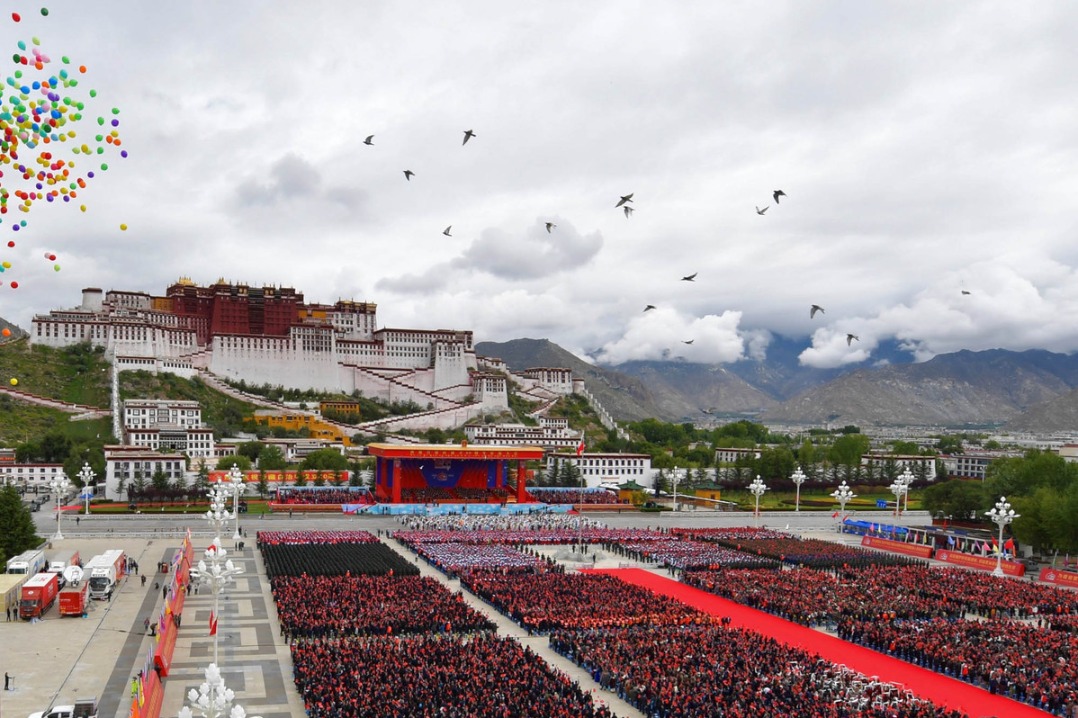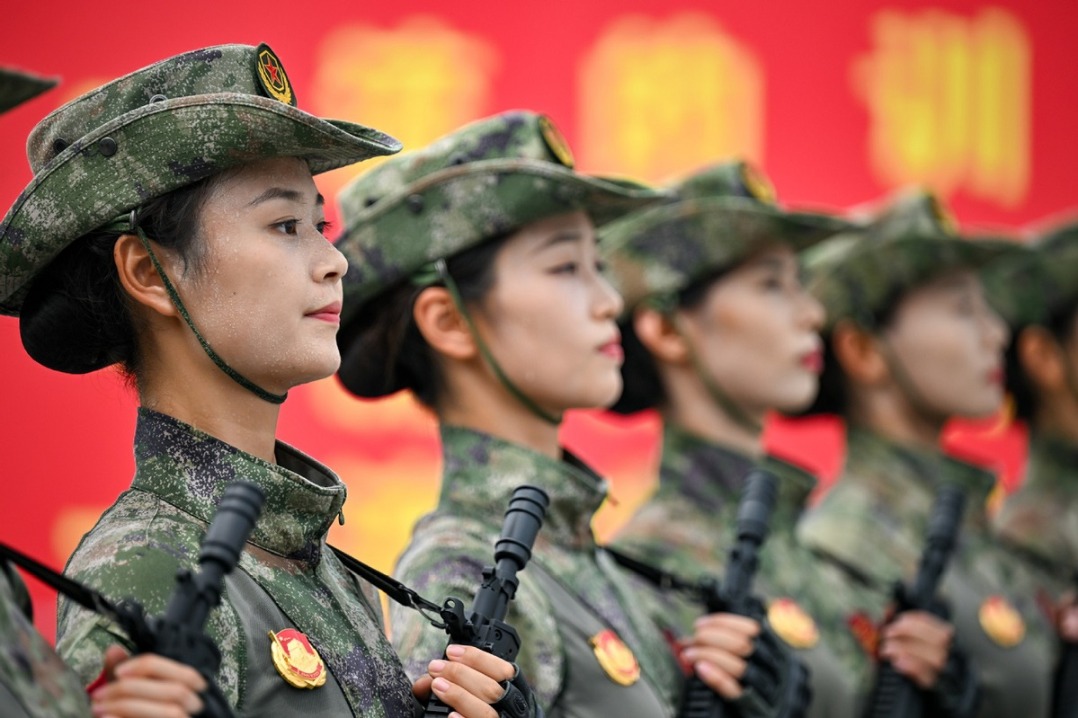In a fix
Global governance should move toward building a shared home for humanity to overcome the peace, development and security deficits


Over the past eight decades, the United Nations, as the most representative and authoritative institution of global governance, has played an irreplaceable role in maintaining international peace and promoting common development. Yet, today's world is undergoing profound and complex changes. Multiple crises have emerged and are overlapping, placing unprecedented pressure and challenges on the global governance system. Deficits in peace, development, security and governance are interwoven, becoming prominent bottlenecks that restrict humanity's sustainable development momentum. Stalemates in the decision-making mechanism, low implementation rates of development aid, and the lack of effective international coordination on emerging technologies all highlight the urgent need to improve the representativeness, effectiveness and inclusiveness of the current global governance system.
A closer examination of the UN framework reveals particularly acute structural contradictions. On the one hand, the agenda-setting process is out of sync with the times: Traditional governance priorities still focus on political security and economic development, while global emerging issues such as climate change, cybersecurity and AI ethics receive relatively slow responses. On the other hand, resources mobilization capacity is insufficient. Some member states frequently fall into arrears on their dues, and the gap in humanitarian aid funding continues to expand, severely constraining the UN's ability to act.
Facing these governance dilemmas, China, as the world's largest developing country, has consistently upheld the vision of building a community with a shared future for humanity, and is actively seeking meaningful reform and improvement of the global governance system. China has successively proposed three major global public goods — the Global Development Initiative, the Global Security Initiative and the Global Civilization Initiative — providing Chinese solutions for improving global governance.
In the development domain, China advocates advancing connectivity through infrastructure to promote shared growth and actively pursues pragmatic cooperation in areas such as clean energy and the digital economy. To date, China has signed Belt and Road cooperation documents with more than 150 countries and 30 international organizations, implementing over 2,000 major cooperation projects that have created vast employment opportunities. For example, within the framework of Saudi Arabia's "Vision 2030" strategy, Chinese companies have worked with Saudi counterparts to transform oil wealth into investments in new energy industries, jointly building green energy bases. In partnership with the United Arab Emirates, China has co-developed a multilateral central bank digital currency bridge project, offering innovative solutions for cross-border payments and financial cooperation. According to the assessment by the United Nations Development Programme in 2023, Chinese solutions have raised the overall progress of implementing the Sustainable Development Goals by 12 percent, with the adoption rate of clean energy increasing by as much as 18 percent.
In the field of security, China upholds the vision of common, comprehensive, cooperative and sustainable security, seeking to resolve disputes through dialogue and consultation. China successfully mediated the restoration of diplomatic relations between Iran and Saudi Arabia, making a significant contribution to peace and stability in the Middle East. It has also played a constructive role in the Myanmar situation, encouraging dialogue among all parties. Such practices have contributed to the incorporation of the "development-security correlation index" into the UN's conflict early-warning system, offering new approaches to conflict prevention.
In the sphere of relations among different civilizations, China promotes dialogue and mutual learning among civilizations, and encourages greater linguistic diversity in the UN's official documentation. Over the past decade, the proportion of Chinese-language documents at the UN has risen from 7 percent to 21 percent. In addition, nearly 40 dialogue platforms at all levels under the Global Civilization Initiative have been launched, building bridges for mutual understanding among diverse civilizations.
These practices not only embody China's firm support for multilateralism but also reflect the Oriental philosophical pursuit of "harmony without uniformity". Building on this tradition, some Chinese scholars have advanced the concept of "harmonious unity and good governance", which emphasizes seeking harmonious coexistence on the basis of respecting diversity and difference, and achieving good governance through dialogue and collaboration. This concept regards human society as a shared community of life, aiming to strike a dialectical balance between the principle of sovereignty and global responsibility, and to address structural contradictions through dialogue and negotiation. China's participation in global governance underscores the common interests of humanity, balances the principle of sovereignty with global responsibility, and places emphasis on addressing fundamental contradictions through preventive diplomacy and long-term cooperation.
Inspired by this concept, international academia has also begun exploring more inclusive and flexible governance frameworks. The European Union's regulatory export model, the Association of Southeast Asian Nations' crisis management approach, and the African Union's development financing mechanisms could complement one another's strengths. In emerging fields such as artificial intelligence, some scholars have proposed creating a "technology-ethics-institution" integrated governance architecture to balance innovation incentives with risk control. They also advocate a results-oriented approach that emphasizes not only procedural justice, such as third-party debt assessments, but also the sharing of tangible benefits, such as the transfer of green technologies.
To better adapt the UN to the needs of the 21st century, reforms can be carried out in three areas. First, enhancing the representativeness and inclusiveness of governance structures by increasing the weight of emerging markets and developing countries in agenda-setting, and piloting a rotating lead-country mechanism to address the representational crisis. Second, innovating the design of rules by establishing flexible participation mechanisms that allow countries to assume responsibilities according to their capabilities and stages of development. In recent years, the Asian Infrastructure Investment Bank has adopted an innovative governance structure that upholds international standards while being more flexible and pragmatic. The New Development Bank established by the BRICS countries has steadily advanced its membership expansion, injecting fresh vitality into international financial governance. Third, leveraging digital technologies to enhance resources mobilization and allocation efficiency by building a global governance resources-matching system powered by blockchain smart contracts and big data platforms.
Innovative global financing tools should be developed to translate the right to development from vision to reality. And mechanisms for climate loss-and-damage compensation should be advanced to achieve ecological justice.
As the vision of a community with a shared future for humanity gains increasing recognition worldwide, global governance is transitioning from an institutional patchwork to paradigmatic reconstruction. The unique value of China's participation in global governance lies in its ability to combine the civilizational gene of "valuing harmony" with innovative practices of "systemic governance", and to uphold the core principles of multilateralism while respecting the reality of civilizational diversity.
In the face of global challenges, the international community should jointly advocate value consensus at the global level, build communities of shared interests at the regional level, and fulfill respective responsibilities at the national level.
Standing at the historical juncture of the UN's 80th anniversary, what we need is a global governance system that is more inclusive, fair and effective. This is not only about the evolution of the international order, but also about shaping a more inclusive and sustainable form of civilization — one that seeks unity in diversity, nurtures resilience amid change, and forges the future through cooperation. China will continue to work with other countries to promote global governance toward greater fairness and justice, making new and greater contributions to the common well-being of humanity.
Liu Tiewa is dean and professor at the Academy of Regional and Global Governance at Beijing Foreign Studies University. Zhai Kun is a professor at the School of International Studies and deputy dean of the Institute of Area Studies at Peking University. Yue Shengsong is an associate professor at the Academy of Regional and Global Governance at Beijing Foreign Studies University. The authors contributed this article to China Watch, a think tank powered by China Daily. The views do not necessarily reflect those of China Daily.
Contact the editor at editor@chinawatch.cn.

















